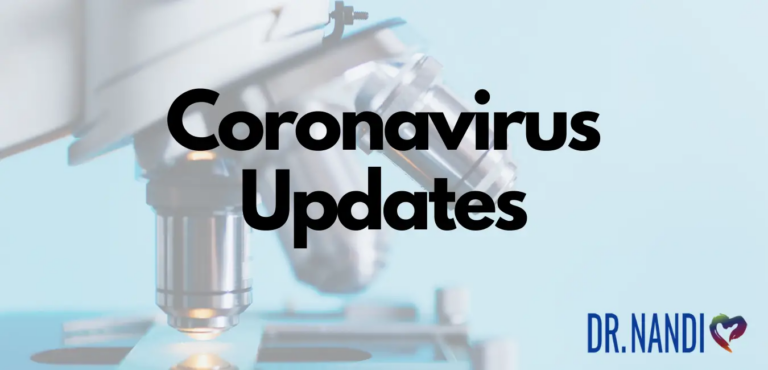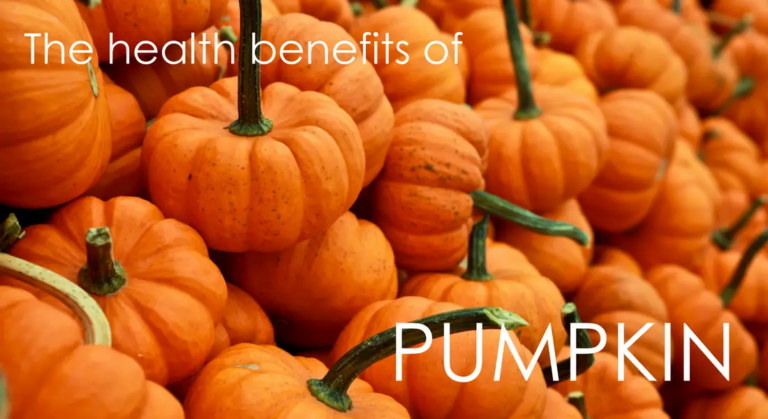Are you tired all the time? Do you experience a lack of energy, low motivation, focus, and compromised performance? Do you have trouble sleeping or feel tired despite sleeping?
Are you ready for more energy, health, and joy in your life?
In this article, I will discuss the 10 most common reasons people suffer from low energy. I will share some simple tips on regaining your healthy energy levels.
Why Do I Have Low Energy? 10 Reasons Having Low Energy
Thyroid Disease
Your thyroid is a butterfly-shaped gland in your neck that impacts many of functions in your body, including your heart rate, regulating your body temperature, metabolism and energy levels. Though about 20 million Americans have thyroid disease, 60 percent of them are unaware of it and deal with untreated symptoms.
Symptoms of thyroid disease can include fatigue, weight gain or loss, muscle and joint pain, poor performance, lack of focus, moodiness and changes in appetite. Thyroid disease is often caused by hormonal imbalance, a poor diet, stress, food intolerance (eg. gluten and dairy), nutrition deficiencies (eg. selenium or iodine), and toxicity exposure. (1, 2)
What to do about it?
Most importantly, visit your doctor and get tested for thyroid disease. If you have a thyroid condition, please change your diet. Avoid junk food and enjoy whole foods at least 80 percent of the time, including vegetables, greens, fruits, nuts, seeds, and a limited amount of meat. Try adaptogen superfoods, such as ashwagandha, maca and tulsi.
Adrenal Fatigue or Chronic Fatigue Syndrome
Adrenal fatigue is a result of hormonal imbalance when your body has trouble regulating cortisol and adrenaline in your body. Those hormones are responsible for energy regulation; no wonder you feel tired when they are off. Stress, trauma, a poor diet, environmental toxins, overexercising and poor sleep can all contribute to adrenal fatigue. (3)
Chronic fatigue syndrome (CFS) is a long-term illness that comes with an array of symptoms, including fatigue, trouble sleeping, pain, stiffness, tenderness and trouble concentrating. CFS may be a result of poor immunity, pituitary dysfunction, hormonal deficiencies, yeast overgrowth and infections. (4)
What to do about it?
Again, visit your doctor first for a diagnosis and ruling out other conditions. Avoid excess sugar, carbs, hydrogenated oils, and caffeine. Fill up on healthy fats, proteins and fresh veggies. Try adaptogen herbs, ashwagandha in particular for hormonal balance. You may benefit from B vitamins, magnesium, zinc and vitamin D supplementation. Learn relaxation techniques and aim to sleep more.
Lack of Activity
Believe it or not, a sedentary lifestyle can lead to fatigue. Sitting all day is not natural to your body and can lead to back pain, neck pain, chronic headaches, stiffness, mood issues, weight gain, sluggishness, tiredness and low motivation. (6)
On the other hand, regular exercise can strengthen your muscles, increase your endurance, balance your hormones, improve your insulin resistance, boost your mood, better your sleep and up your energy. Just 6 weeks of 20-minutes of light exercise can increase your overall energy according to research. (7, 8)
What to do about it?
Instead of sitting around at work, try a standing desk. Set an alarm on your phone to take breaks to stretch and move around a bit. Take the stairs. Walk or bike to places if you can. Schedule outdoor activities, such as nature walks, hikes, paddle boating, bike rides, gardening and running. Mix up your exercise routine and find what you love. Join a group if that helps your motivation. Make sure to move your body 20-30 minutes at least 5 days a week and stay generally active.
Mental Health, Mood and Emotional Stress
Mental health issues affect more and more people in the US. Depression is one of the most common ones that about 16 million adults experience a year. Depression can contribute to stress, emotional problems, trauma, nutritional deficiencies, lack of sunlight, hormonal imbalance, neurotransmitter imbalance and toxicity. Anxiety is another common mental health disorder that is often caused by all sorts of stress, emotional problems, trauma, imbalances in the body, illness and side effects of medication. Both depression and anxiety can lead to tiredness. Depression can be specifically characterized by low energy, low motivation, and even the lack of ability to get out of bed or take care of basic tasks. You don’t have to have a diagnosed health condition. Daily emotional stress, such as personal stress, work stress can cause tiredness and imbalance in your body. (9, 10, 11, 12, 13, 14)
What to do about it?
Visit a mental health professional for diagnosis and treatment. You can benefit from counseling or therapy to work through emotional issues, trauma and learn coping skills. Aim to eat a diet that is at least 80 percent filled with energy-busting healthy foods, such as greens, vegetables, fruits, nuts, seeds, legumes and some meat. Healthy fats, such as avocados and coconut are crucial for mental health. Reduce processed foods and refined sugars. Treats as such should be no more than 20 percent of your diet. Learn relaxation techniques. Spend time in nature. Exercise. Find a loving and supportive community to help you through the hard times.
Poor Sleep
You should be sleeping 7 to 9 hours a night. While health conditions, such as adrenal fatigue, chronic fatigue, sleep disorders, and thyroid problems contribute to poor sleep, often people get little sleep by simply not prioritizing their sleep and rest. Sleep deprivation can lead to fatigue, low energy, lack of motivation, mood imbalances, and weight gain. (15, 16)
What to do about it?
Prioritize sleep. Wind down at night by turning off electronics, avoiding stress and engaging in relaxing activities. Learn relaxation techniques. Avoid sugary and processed foods and caffeine close to bed-time, preferably starting in the afternoon. Try magnesium and turmeric golden milk right before bed as well.
Leaky Gut Syndrome
Leaky gut syndrome happens when your digestive tract becomes damaged and small holes develop in your gut lining that allows small particles to pass into your bloodstream. This can cause tiredness, digestive issues, problems concentrating, pain and weight gain. Processed foods, refined sugars, antibiotics, prescription medications and environmental toxins can all lead to leaky gut. (17)
What to do about it?
Take daily probiotic supplements and eat probiotic-rich fermented foods to help repairing your gut. Eat a whole foods diet at least 80 percent of the time to correct nutritional deficiencies.
Anemia
Anemia is a condition when your red blood cell count is lower than normal and has a low oxygen supply to its cells and tissues. Anemia can lead to constant fatigue, muscle weakness, trouble exercising, inability to concentrate, pain and fainting. Anemia is often caused by nutrient deficiencies such as low iron and sometimes low B12 and folate levels.
What to do about it?
Visit your doctor to get tested for anemia. Eat iron-rich foods, such as pumpkin seeds, lentils, tempeh, tofu, chard, collard greens, quinoa, iron-fortified foods, liver and red meat. Eat foods rich in B vitamins, such as brewer’s yeast, nuts, seeds, broccoli, avocados, greens and fortified foods. Take iron-supplements and B vitamins and vitamin C as needed.
Dehydration
Dehydration can lead to loss of electrolytes and body fluids that can lead to nutritional imbalances, fatigue, exhaustion, moodiness, pain and brain fog. Excessive sweating, exercise, illness, being in the sun, drinking soda, eating processed foods, diabetes, IBS, stress, prescription medications, and simply not drinking water can all lead to dehydration. (19)
What to do about it?
Drink 8 – 10 glasses (8 oz) of water a day, and more if you exercise. You can add green juices, smoothies, or herbal teas in addition to this. Limit your caffeine intake and avoid sodas and sugary drinks. Drink coconut water to add more electrolytes to your body, especially after exercise or on a hot day. Eat hydrating fruits and vegetables, such as watermelon, cantaloupe, cucumber, celery, bell pepper, citrus, pineapple, kiwi and grapes. Always hydrate before, during and after exercise.
Blood Sugar Imbalance
Blood sugar imbalances can lead to afternoon crashes and fatigue. Many people experience occasional blood sugar imbalances that they can easily fix with a little attention. Others deal with serious blood sugar issues that increase the risk of type 2 diabetes, an increasing problem that affects over 12 percent of US adults. Blood sugar imbalance can lead to fatigue, cravings, headaches, mood imbalance. It can be caused by a poor diet, diabetes type I and II, candida, parasites and pancreatic issues. (20, 21)
What to do about it?
First, visit your doctor to make sure you don’t have diabetes or pre-diabetes. Reduce refined sugars, processed foods, sugary snacks and beverages. Eat plenty of healthy fats and protein. Focus on greens, vegetables, nuts, seeds, legumes and limited amounts of meat. Eat regularly to avoid sugar crashes.
Poor Diet
Your diet impacts everything including your physical and mental health, energy levels, sleep, hormones, motivation, performance and outlook on life. A poor diet filled with processed foods, refined sugars, low in greens, vegetables, fruits and other whole foods can compromise your energy levels and lead to constant tiredness. A poor diet is often caused by poor lifestyle choices, habits, convenience of grabbing quick foods, not prioritizing one’s health, the influence of others, food addictions or lack of awareness on nutrition.
What to do about it?
Slowly make changes in your diet. Limit processed foods and refined sugar. Focus on whole foods instead. Adapt an 80/20 approach. Eat healthy whole foods, such as greens, vegetables, fruits, nuts, seeds, and meat in moderation 80 percent of the time. 20 percent of the time you may choose less healthy options such as treats or eating out. Remember, it’s okay to eat healthy more than 80 percent of the time. 85/15, 90/10 or 95/5 is even better, what’s important is to keep less healthy options at no more than 20 percent. Buy fresh produce and dry foods, like grains, beans, nuts, seeds, and oatmeal in bulk. If you eat meat, buy organic, grass-fed, wild-caught, and cage-free. Buy organic produce whenever possible paying attention to the dirty dozen and clean 15 lists. Don’t be afraid of fats: healthy fats, such as avocados, coconut oils, and seeds are good for hormonal balance, your mood, and stress. Avoid overeating but try not to under-eat either. Eat regularly, slowly, and mindfully.
Conclusion
This information should help you to identify what may be causing your fatigue. If you are concerned about a medical condition, such as thyroid issues, adrenal fatigue, chronic fatigue syndrome, anemia, blood sugar problems, or mental health conditions, visit your healthcare professional. To regain your energy, change your diet by employing the 80/20 approach to health, drink plenty of water, exercise regularly, learn relaxation techniques, lower your stress levels, and start prioritizing sleep. Small changes over time can bring you excellent results.
I hope you’ve found this article helpful. If you have any questions, share them in the comment section. I am here to help you regain your energy and achieve the health you deserve.
References:
- https://www.webmd.com/women/guide/understanding-thyroid-problems-basics#1
- https://www.womenshealth.gov/a-z-topics/thyroid-disease
- https://adrenalfatigue.org
- https://medlineplus.gov/chronicfatiguesyndrome.html
- https://www.ncbi.nlm.nih.gov/pubmed/22987912
- https://www.mayoclinic.org/symptoms/fatigue/basics/causes/sym-20050894
- https://medlineplus.gov/benefitsofexercise.html
- https://news.uga.edu/low-intensity-exercise-reduces-fatigue-symptoms-by-65-percent-study-finds/
- https://www.nimh.nih.gov/health/statistics/major-depression.shtml
- https://www.ncbi.nlm.nih.gov/pmc/articles/PMC3225130/
- https://www.beyondblue.org.au/get-support/online-forums/anxiety/anxiety-following-fatigue
- https://www.anxietycentre.com/anxiety-symptoms/chronic-fatigue-anxiety.shtml
- https://www.nimh.nih.gov/health/statistics/major-depression.shtml
- https://www.webmd.com/anxiety-panic/guide/causes-anxiety
- https://sleepfoundation.org/how-sleep-works/how-much-sleep-do-we-really-need
- https://www.ncbi.nlm.nih.gov/pubmed/15798944
- https://www.health.harvard.edu/blog/leaky-gut-what-is-it-and-what-does-it-mean-for-you-2017092212451
- https://www.ncbi.nlm.nih.gov/pubmedhealth/PMHT0021987/
- https://www.ncbi.nlm.nih.gov/pubmed/22855911
- http://templatelab.com/national-diabetes-report-2014/
- https://www.diabetesselfmanagement.com/blog/what-causes-diabetes-fatigue/
- https://www.nutritionist-resource.org.uk/articles/tiredness.html
- https://www.webmd.com/food-recipes/features/foods-fight-fatigue






















